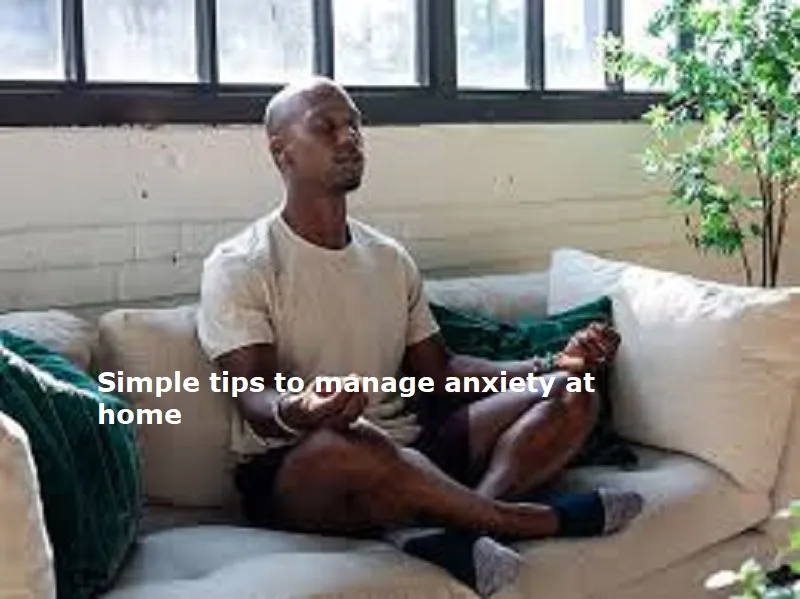
Anxiety is a natural response to stress characterised by feelings of fear, worry, or unease. It occurs when the body perceives a threat, triggering a “fight-or-flight” response. While occasional anxiety is normal, excessive or prolonged anxiety can interfere with daily life. It may lead to conditions like generalised anxiety disorder (GAD), panic disorder, or social anxiety. Common symptoms of anxiety include restlessness, rapid heartbeat, muscle tension, irritability, and difficulty concentrating.
Top tips to manage anxiety at home
1. Practice deep breathing exercises
Deep, slow breathing helps activate the parasympathetic nervous system, which reduces the body’s stress response. Techniques like diaphragmatic breathing or the 4-7-8 method (inhale for 4 seconds, hold for 7, exhale for 8) can lower heart rate and create a calming effect. Spend 5–10 minutes daily practicing controlled breathing.
2. Incorporate regular exercise
Physical activity releases endorphins, the body’s natural mood elevators, and reduces stress hormones like cortisol. Activities such as yoga, walking, or aerobic exercises not only improve physical health but also create mental clarity. Aim for at least 30 minutes of moderate activity most days.
3. Limit caffeine and alcohol
Caffeine stimulates the central nervous system, which can exacerbate anxiety symptoms, while alcohol may initially calm but often worsens anxiety over time. Replace these with calming beverages like herbal teas (e.g., chamomile or peppermint).
4. Create a structured routine
Uncertainty can heighten anxiety, so having a consistent daily schedule provides a sense of control. Allocate specific times for work, relaxation, and self-care to reduce overwhelm.
Also Read: Easy tips to manage gestational diabetes
5. Practice mindfulness and meditation
Mindfulness involves staying present in the moment and observing thoughts without judgment. Guided meditations or apps like Headspace and Calm can teach mindfulness techniques that help break the cycle of worry. Dedicate 10–15 minutes daily to this practice.
6. Engage in a relaxation activity
Relaxation techniques such as progressive muscle relaxation, art therapy, or journaling can divert the mind from anxious thoughts. Colouring, sketching, or even knitting can have meditative effects and calm the mind.
7. Maintain a balanced diet
A nutrient-rich diet with omega-3 fatty acids, magnesium, and B vitamins supports brain health and mood regulation. Include foods like fatty fish, nuts, seeds, leafy greens, and whole grains. Avoid skipping meals, as low blood sugar can trigger anxiety.
8. Connect with supportive people
Talking to trusted friends or family can provide emotional relief. Sharing worries and receiving encouragement strengthens your resilience against anxiety.
9. Limit news and screen time
Overexposure to negative news or prolonged social media use can amplify stress. Set boundaries, such as consuming news only once a day or taking regular screen breaks, to create mental space for relaxation.
10. Use aromatherapy
Essential oils like lavender, bergamot, or sandalwood have soothing properties. Use a diffuser or apply diluted oils to your wrists to promote relaxation. Scents work through the olfactory system to reduce cortisol levels and induce calmness.

Post Your Comments